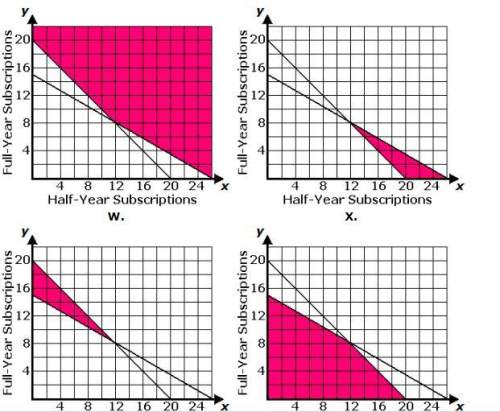
Mathematics, 18.03.2021 01:30 changemyfate69
Let 0 < p < 1 and 0 < r < 1 with p ≠ r. You repeat a trial with success probability p until you see the first success. I repeat a trial with success probability r until I see the first success. All the trials are independent of each other. What is the probability that you and I performed the same number of trials? Let Z be the total number of trials you and I performed altogether. Find the possible values and the probability mass function of Z.

Answers: 2


Another question on Mathematics


Mathematics, 21.06.2019 21:00
Can some one explain how to slove specifically, what is the value of x? 0.9(x+1.4)-2.3+0.1x=1.6 enter the answer as a decimal in the box. x= ?
Answers: 2

Mathematics, 21.06.2019 22:00
If abcde is reflected over the x-axis and then translated 3 units left, what are the new coordinates d?
Answers: 3

Mathematics, 21.06.2019 23:00
What is the length of the midsegment of a trapezoid with bases of length 15 and 25 ?
Answers: 1
You know the right answer?
Let 0 < p < 1 and 0 < r < 1 with p ≠ r. You repeat a trial with success probability p un...
Questions


Mathematics, 19.10.2020 22:01



Mathematics, 19.10.2020 22:01

Mathematics, 19.10.2020 22:01

Chemistry, 19.10.2020 22:01

Chemistry, 19.10.2020 22:01



Chemistry, 19.10.2020 22:01



Mathematics, 19.10.2020 22:01



English, 19.10.2020 22:01

Mathematics, 19.10.2020 22:01





